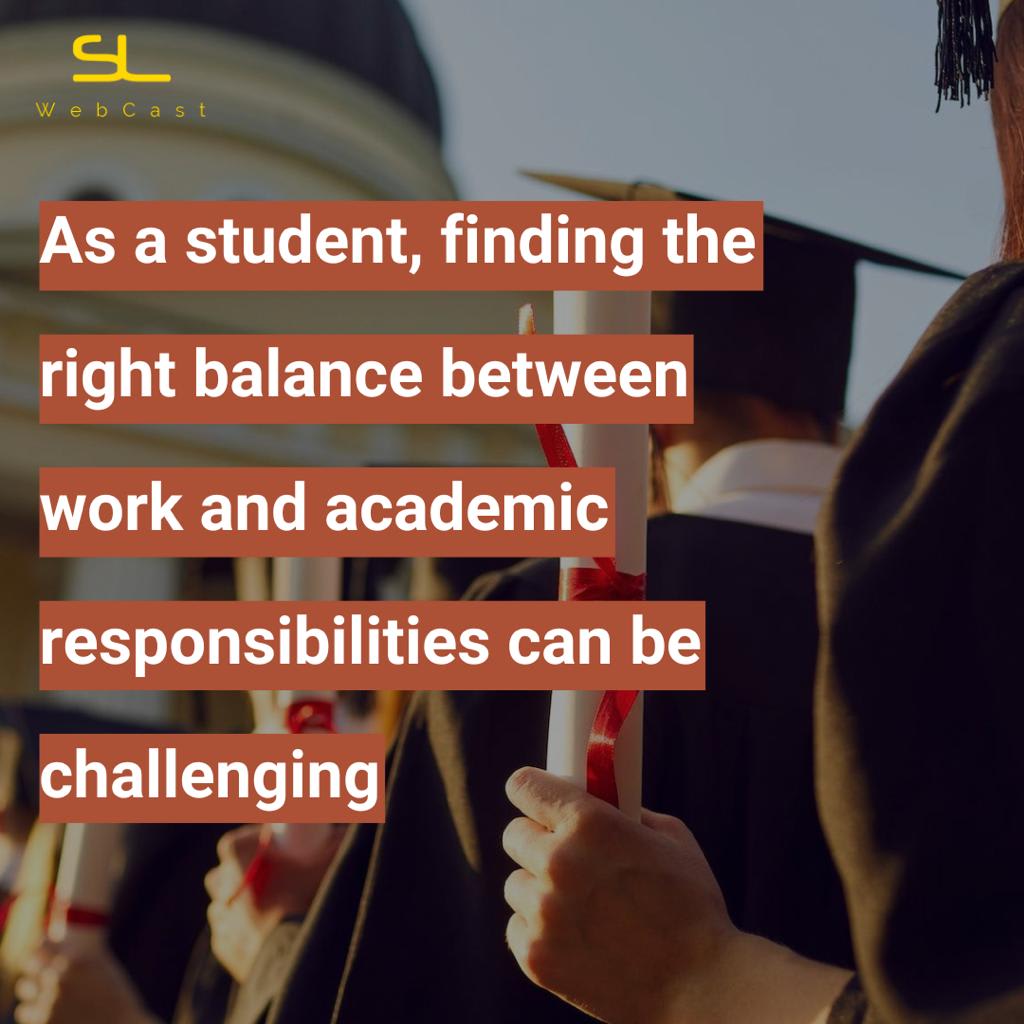As a student, the decision to pursue a career while studying is often motivated by the desire to gain experience, supplement income, or develop skills relevant to their field of study. However, balancing a career and studies simultaneously can present unique challenges, including time management, conflicting schedules, and the workload of juggling multiple responsibilities. Finding the right balance between these two essential areas of life requires dedication, commitment, and a willingness to make sacrifices. Nevertheless, with the right mindset and strategies, it is possible to succeed both academically and professionally while maintaining a healthy work-life balance.
In today’s fast-paced and competitive world, many students choose to work while pursuing their studies to gain experience, supplement their income, or develop skills relevant to their field of study.
To successfully balance a career and studies, students need to prioritize their time, set achievable goals, communicate with their employers and professors, and take care of themselves. Effective time management skills are crucial to ensure that both academic and work commitments are met without compromising one’s health or academic performance. Students must communicate effectively with their employers and professors about their schedules and commitments. This allows for flexibility and helps avoid conflicts that may negatively impact performance in both areas. It is also important to take care of oneself by getting enough rest, eating well, and taking breaks when necessary. It is okay to take breaks as we’re humans and we do have ups and downs mentally and physically.

Time management is a critical aspect of balancing a career and studies simultaneously. As a student, finding the right balance between work and academic responsibilities can be challenging, but effective time management strategies can help students meet their obligations and achieve success in both areas. Prioritizing tasks can help students manage their time effectively. Students can create a to-do list or use a planner to identify and prioritize tasks based on their level of importance and urgency. This allows students to focus on completing the most critical tasks first, reducing the risk of missing deadlines or compromising their academic performance. Also setting realistic goals is crucial to ensure that students can balance their academic workload with their job responsibilities. Students can break down their larger goals into smaller, more achievable ones, making it easier to manage their time and avoid becoming overwhelmed.
Creating a schedule that balances work and academic commitments can help students manage their time effectively. Students can create a weekly or monthly schedule that includes dedicated study time and work hours, allowing them to plan their time accordingly.
Effective communication with employers and professors is crucial when balancing a career and studies. Students should communicate their schedules and commitments, allowing for flexibility and avoiding conflicts that may negatively impact their academic or work performance.
Procrastination can lead to missed deadlines and increased stress levels. Students should try to avoid procrastination by breaking down their tasks into smaller, more manageable ones and setting deadlines to ensure they stay on track.

The next main thing about balancing both studies and carrier is the workload for both sides. It can be overwhelming, leaving students feeling overwhelmed and burned out. This can lead to poor academic performance or a decline in work productivity. Managing workload is an essential aspect of balancing both studies and a job simultaneously. It can be challenging to handle the demands of both academic and work responsibilities. So as a solution for this, breaking down larger tasks into smaller, more manageable ones can help students tackle their workload effectively. It also reduces the risk of becoming overwhelmed, which can lead to burnout and decreased productivity.
One of the most significant challenges faced by students who are working and studying at the same time is conflicting schedules. It can be challenging to juggle work shifts with class schedules, deadlines, and other academic responsibilities. As some main things like overlapping work and class schedules, insufficient time for studying and completing assignments, lack of flexibility in work or academic schedules, and also reduced time for extracurricular activities are some of them.
Solutions for this communication will be one of the best answers. Communication is essential when dealing with conflicting schedules. Students should communicate their academic schedule and work availability to their employers and professors to avoid scheduling conflicts. And also students can request for flexible work schedules or consider online classes, which can provide more flexibility in managing their schedules. Students can utilize their downtime, such as commuting or lunch breaks, to complete small tasks such as reviewing notes, reading textbooks, or working on assignments.

Support from family, friends, or colleagues can help students overcome challenges and achieve success both academically and professionally. Students can seek support from family and friends to help them manage their workload. They can help with household chores, childcare, or cover for work shifts, providing students with more time to focus on their studies. Students can access academic support services such as tutoring or academic advising. Many universities offer these services free of charge to their students, and they can help students overcome academic challenges. Students can utilize technology to overcome the lack of support. For example, they can use online resources such as e-books, online courses, and virtual study groups to supplement their studies. Students can join clubs or organizations that share their academic or career interests. It can help them connect with like-minded individuals, providing emotional support and motivation. Lack of support can present significant challenges for students who are balancing a career and studies. However, seeking support from family and friends, accessing academic support services, utilizing technology, finding a supportive community, and seeking financial aid can help students overcome these challenges and achieve success both academically and professionally.
Balancing both a career and studies can also create a significant financial burden for students. They may struggle to pay for tuition, textbooks, and other academic expenses while also managing their living expenses and work-related costs. The cost of tuition fees can be prohibitively expensive, making it challenging for students to balance both their career and studies. And also, Students may have limited financial resources and struggle to meet the financial demands of their academic and professional lives. Balancing work and studies can increase work-related expenses such as transportation, work attire, and equipment costs. So as a solution for these, Students can seek financial aid such as scholarships, grants, or student loans to help them pay for their academic expenses. Many universities offer financial aid programs to support students in need. And also, Students can look for part-time jobs that offer benefits such as tuition reimbursement, healthcare benefits, or retirement savings plans. These benefits can help ease the financial burden of balancing work and studies. Students can develop a budgeting plan to help them manage their finances effectively. Budgeting can help students track their expenses, reduce unnecessary spending, and save money. Students can explore alternative learning options such as online courses or community college courses, which can be more affordable than traditional university courses.

The story of this student who has successfully balanced both his studies and his career serves as an inspiration to many. It is not easy to juggle these two important aspects of life, but with dedication, hard work, and perseverance, it is possible to achieve one’s goals. The student’s success is a testament to the power of time management, prioritization, and focus. By setting clear goals, creating a schedule, and sticking to it, he was able to make the most of his time and excel both in his academic pursuits and his career.
It is important to note that finding balance between studies and career is not a one-size-fits-all approach. Each individual has unique circumstances, and what works for one person may not work for another. However, the principles of time management, prioritization, and focus remain essential to success in both areas.
In conclusion, the story of this student’s journey serves as a reminder that success is possible when one is committed to their goals and willing to put in the effort required to achieve them. With the right mindset, anyone can achieve their dreams, regardless of the challenges they may face.


